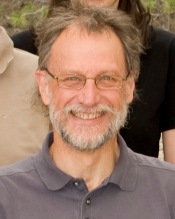 I know. I've been slack, and I'm going to admit that this may not happen every Monday, but this weekend, despite still going full tilt with promotion (though nearly seeing light), I took a little time to read (and write - more on that soon because I now have an agent and contract for a new poetry book!) some poetry. As I'm sure you know, my own poetry is heavily influenced by science, so when I saw that Dr Ian Gibbins, professor of Anatomy and History at Flinders University was coming out with his first full length poetry book, I immediately agreed to review it. Yes, I know, my stack is high and I'm behind, but this is candy for me and I've got a sweet tooth. Here is just a delicious taste of what's inside the book - a snippet from the poem "Field Guide" (which also contains stanzas with the POV of Comb Jellies, Spotted Eagle Rays, The Hawksbill turtle, Blue Tiger butterflies, fruit bats, seabirds, and dolphins). This is, so far, my favourite poem in the collection, but it's early days and I'm reading slowly.
I know. I've been slack, and I'm going to admit that this may not happen every Monday, but this weekend, despite still going full tilt with promotion (though nearly seeing light), I took a little time to read (and write - more on that soon because I now have an agent and contract for a new poetry book!) some poetry. As I'm sure you know, my own poetry is heavily influenced by science, so when I saw that Dr Ian Gibbins, professor of Anatomy and History at Flinders University was coming out with his first full length poetry book, I immediately agreed to review it. Yes, I know, my stack is high and I'm behind, but this is candy for me and I've got a sweet tooth. Here is just a delicious taste of what's inside the book - a snippet from the poem "Field Guide" (which also contains stanzas with the POV of Comb Jellies, Spotted Eagle Rays, The Hawksbill turtle, Blue Tiger butterflies, fruit bats, seabirds, and dolphins). This is, so far, my favourite poem in the collection, but it's early days and I'm reading slowly. 2.3 Parrot fish (Scaridae)
With all their fancy feathers
I suppose the lorikeets and rosellas
can be as brash and noisy as they like.
I would rather take my time
and, gliding between the staghorns,
arrive in rainbowed silence.

You say your poetry is heavily influenced by science, which I would have thought odd until I recently read Richard Dawkins "The Ancestor's Tale", for it is sprinkled with poems (or excerpts of poems) about different critters.
ReplyDeleteJerome, there was a time in my life when I saw poetry and science as opposite ends of a life spectrum, but I've been working in a science based job for many years now and I've come to realise that there is almost nothing more poetic than the hypothesis, than looking at a fly's eye through a scanning electron microscope, than quantum physics (5 flavours of quark!). Dawkins' work is definitely rich with poetry, but then so is Hawkings, Michio Kaku, Darwin, Feynman, or Michio Kaku to name just a few. Both poetry and science explore the universe and aim to stretch or extend our understanding.
DeleteThere's nothing like the noise an owl doesn't make as it cruises the night looking for breakfast.
ReplyDelete